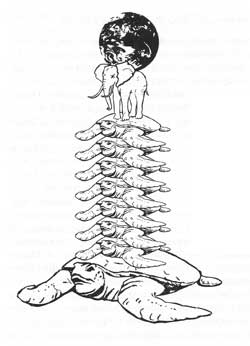
Here’s a bracing passage from a recent article in the Baffler:
IN THE HEYDAY OF THE INTERNET MESSAGE BOARD, let’s say in the 1990s, a certain species of idiot materialized. He was male, aggressively pedantic, self-professedly logical, committed to the hard sciences, prone to starting sentences with “actually,†and almost always devoted to the notion that his disbelief in God imbued him with intellectual superiority.
There are several others like it. I have to admit that reading them stung a bit–this is after all what we do here. If you openly claim to do be self-conscious about your logicness, then any failing real or otherwise is an occasion for disdain and dismissal. It’s annoying, because everyone is their own logic police. As C.S. Peirce observed:
Few persons care to study logic, because everybody conceives himself to be proficient enough in the art of reasoning already. But I observe that this satisfaction is limited to one’s own ratiocination and does not extend to that of other men.
But one part of me thinks the criticism is for this reason completely superficial, not to mention self-contradictory. There’s something of the logic police in it: just another layer higher. When it comes to being critical, it’s turtles all the way down.
And therein lies the question. Argument analysis has its own terms of art. Tu quoque is an example. Using these terms of art in mixed company is nearly always a bad idea. I stress this over and over in my critical thinking classes. Do not use a fallacy name on anyone ever. I know, by the way, I’m guilty of this very thing many times here. In my defense, however, my presumption is that the targets know the terms and besides, I don’t do really do that anymore.
This raises, however, a somewhat tragic (to my mind) point–related to the turtles above. Is not using the name–say, tu quoque–sufficient? Should we not find ways of pointing it out either? That’s pretty much the same thing–it just takes longer (and sort of presumes the target not versed in the right terms). Besides, not using the standard names doesn’t stop people (or perhaps encourages them) from creating a duplicate set of terms. Now, for instance, we have “whataboutism” and others. It does the same exact work at twice the cost.
We can’t avoid the need of evaluating reasons (our own and that of others). We also for this reason can’t avoid the problem of evaluating the evaluating of reasons. It’s simpler, perhaps, just to remind ourselves of Peirce’s observation: everyone is perfectly logical and ignore the temptation to consider it some kind of hypocrisy or arrogance when they’re not.